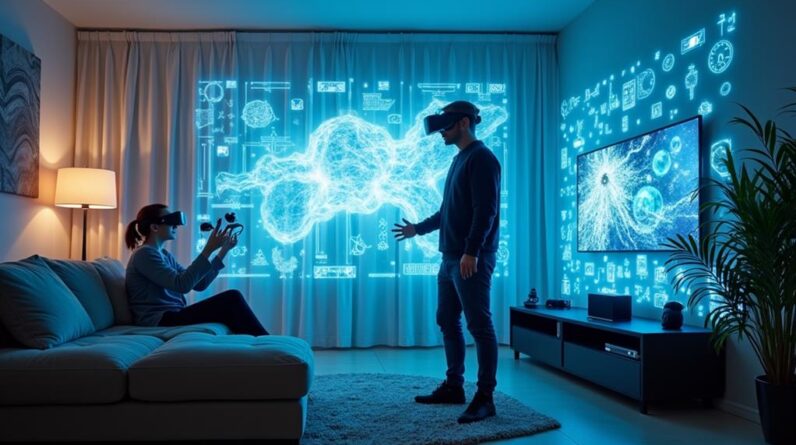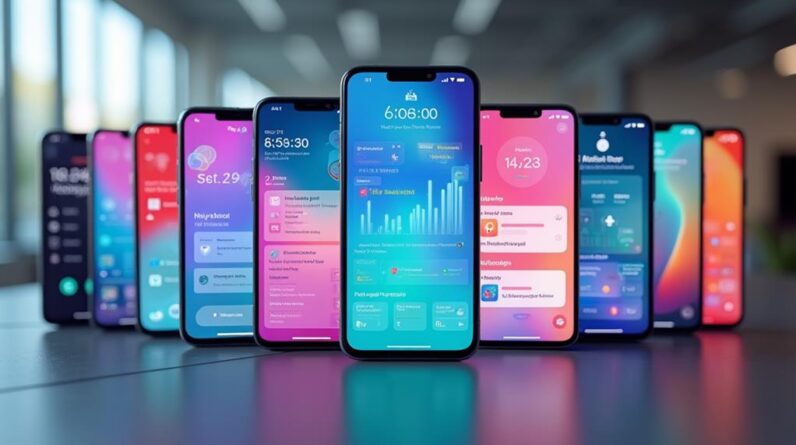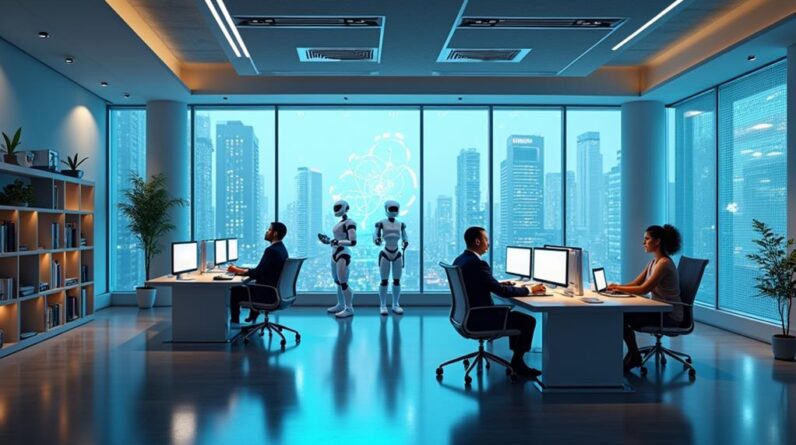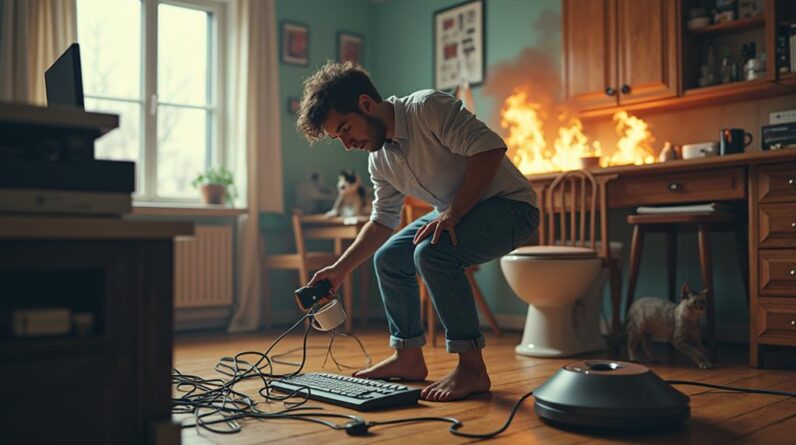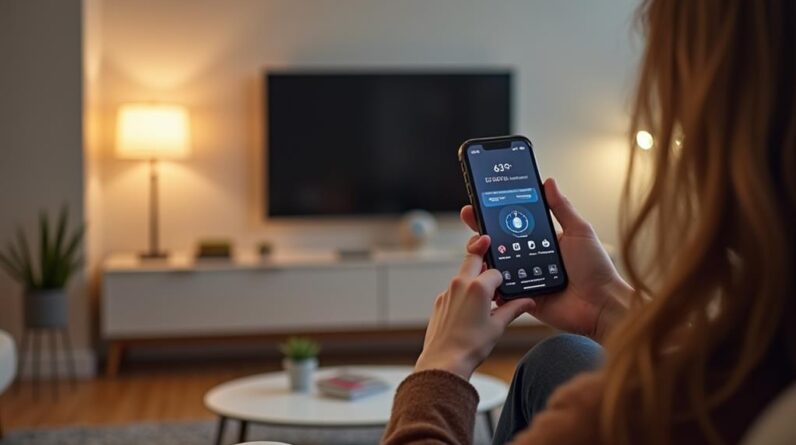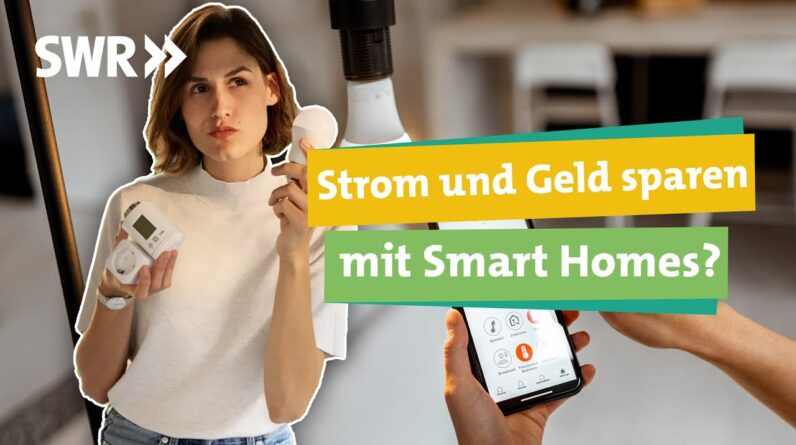
. I can
switch the lights on and off,
operate the shutters and regulate the temperature throughout the house without getting up. What
does that have to do with sustainability? According to the Federal Ministry for the Environment
, private households cause ten percent of greenhouse gases
in Germany. Some
smart home device manufacturers are promising that they could make life more energy efficient
and sustainable. Is the promise
of a sustainable home true? (Powerful music) My apartment isn't smart yet,
how about yours? Do you have smart devices at home? And what would you
want one for? Do comment. How many households in Germany
have smart home devices? According to Statista: Germany's
households are becoming smarter and smarter. According to this,
at least one smart home application will be
in use in 7.2 million households by 2020, and by 2024 their number is expected
to rise to 13.2 million. What is the target group
for smart devices? (crickets chirping) I guess she didn't understand me.
I guess I have to see for myself. The target group is mainly
between 25 and 34 years old and … more male. (Cozy music) I have an appointment with Matthias.
It fits perfectly into the grid. 33, male, tech-savvy. (Cozy music) Ah. Good morning!
– Hello, good morning. Good morning
– Hi. Thank you for letting us be there.
– You're welcome. I'm curious what you got
yourself.
What is smart? Radiator thermostats, door locks,
lights , I
turn them on and off by voice, vacuum and floor mopping robots. May I activate it?
– Can you do. Activate Helga. OK.
(power on sound) Ah! (Dynamic music) If the lamp is off,
in standby mode, and I go on vacation,
can I turn it off completely? No, that's not possible.
It needs about 0.1 watts so that it can be reached
at all times, so that you can say to it: Switch it on, stand on red. It doesn't work completely without electricity,
then it would be stupid and dead. The standby consumption
is specified when you buy it. 0.1 to 0.3 watts
speak for an efficient product. Ah, the magic is in the corner.
– Hey Siri, fan on. That would be a humidifier,
there's an air purifier over there. If the heating is on and
I open the window, it goes off. What fascinates you so much
about these smart home devices? For me Smart Home is
a certain convenience. Sustainability also plays
a role in the Smart Home , heating
would be such an example. Even when I leave the house
, devices are switched off. Let's go to the living room. I noticed something on your desk
. Is that a smart coffee mug? This is a smart coffee mug
that keeps the coffee warm. I took a look
at Matthias' electricity bill. In 2019, his
75 square meter apartment with two people
consumed 1,850 kilowatt hours of electricity. (Curious music) That is actually
almost 1,000 kilowatt hours less than the
average German household. Sounds like a real savings. You save on the one hand , but you probably spend what you save the
same way. Namely for new gadgets. It is best to
choose a system from Google, Apple or Amazon. According to Matthias, compatibility
and energy efficiency are best then, Yes, it's practical. I can understand
what appeals to Matthias about it.
Making the apartment smart afterwards is one thing, but there are also apartments and
houses that are planned in a networked way. That includes this.
I'll let you explain in a moment why this house
should be particularly sustainable . I'm looking
for something like a control unit. Anything
where you can control things. Ah, there. Oh very nice.
"Good night Good Morning". "Everything off" or "Party".
Shall we press party? (beeping)
Let's see what happens. (Waiting music) So far nothing is happening. The party
is probably not programmed yet. I keep looking around. Almost everything can be operated via the control unit
or a tablet . First and foremost: shutters and lamps. (Happy music) Alexa, tonight is TV night. OK, I'll prepare everything.
Enjoy watching TV. It all feels
a bit like a gimmick. How energy efficient
is the house really? I let
the prefabricated house manufacturer explain that to me. In a survey, 20 percent
of respondents said they want to use smart home devices
for environmental reasons. What's
better about this than a normal house? If you
start with the building shell, then we have
a very classic wooden house here. Wood is the most sustainable building material. Then we have an
energy-plus house here, which means the house generates more energy
than it uses. The building structure
is also important, but today it's all
about the smart technology. With the in-house solar system you can
operate the blinds, among other things. The excess energy is then fed into the
public power grid.
According to the manufacturer, such energy-plus houses
can save up to 60 percent energy compared to comparable houses without networking. However, I want to have this classified by a neutral expert
. (Lively music) That all sounds great. A lot of things in there,
like lamps or light switches, would also work without networking
. Are such smart homes really
as sustainable as advertised? Simon, you worked on a study
that looked at energy and
resource consumption. I looked at a smart home
, an energy-plus house. Is that as energy efficient
as these houses are advertised? If this is an energy-plus house , it is definitely
a very high energy standard that this building has. Networking alone
does not make a house an energy-plus house. Building physics also play a part
, i.e. how well are the walls insulated,
what are the windows like, how does
a user behave in such a house, also plays a major role,
and where does the energy come from? What are the differences
between the apartment that is made smart afterwards
and the planned house? In hindsight
, it's usually very difficult to lay cables in a nice way,
that's usually not possible, and accordingly
, wirelessly networked systems
are often used in existing buildings. And they usually have
a higher consumption than wired systems. To what extent can smart home devices
lead to additional consumption? For standby consumption,
for example , we made a calculation
that says that in 2025
, up to … 14 terawatt hours of additional
energy demand could arise in Europe. That is about as much as a coal-fired power plant
produces in one year. This is how much energy the 1.7 billion
networked devices that
will exist by 2025, according to the study, will need. (Lively music) Sounds like a lot, but Simon sees the problem
with smart devices
not only in standby mode, but also … There are enormously complex
manufacturing processes behind it, there are integrated resources that were mined under difficult
conditions. This means that the products are
not just about energy consumption, but also about the resources and the consequences for the climate and environment
when these resources are depleted. Exactly.
Yes. Where can I save energy? We need about two-thirds
of the energy in the heating sector. Various
research projects have shown that by controlling heating and hot water more
intelligently, 20 to 25, and in exceptional
cases even 30 percent of energy can be saved. We have ordered a number of products
that all promise to be particularly energy-efficient. I
don't have a smart device at home yet. If I want to start,
from a sustainability perspective, where do I start? I would start with the heating system, that's
where we have the biggest emissions. In order to be efficient, however , the devices must
be set correctly. The aim of heating thermostats is
to control the temperature in such a way that it is only really hot
when the heat is needed. When you're not there, a
room temperature of 16 degrees is enough. Otherwise,
20 degrees is recommended for the living room. In the bathroom 23, in the kitchen 18 and in the
bedroom between 16 and 18 degrees. Heating thermostats work
independently of other devices. If you network several devices with each other
, it is important that they are compatible with each other
. If they have
different radio standards, you need a network bridge, i.e.
A network bridge,
so that the devices
can communicate via the WLAN. And it has its own
energy consumption. If we
want to live sustainably in the future, can we
not avoid Smart Home? I think a certain smartness
will definitely play a role. These technologies have great potential for sustainability in terms
of ecological sustainability
, especially when it comes to
saving heating energy. I have to say I'm a
bit skeptical about the technology. It will be a while
before my home becomes smart. But, as Simon said, if we
want to live more sustainably in the future , we can't avoid a little more
smartness. If you want to upgrade your home
, keep these things in mind: First, think carefully about
whether you need the devices. After
all, resources are wasted on this. Second: Make sure that the
devices are compatible with each other. Bridging devices
consume a lot of energy. And thirdly: With many heating
thermostats, the investment is worthwhile. You sometimes use up to
a third less heating energy. And that saves you heating costs
and CO2. How about you? Do you dream
of a connected home? Write that
in the comments, I'm curious. If you liked the video,
give us a like and subscribe to us. Here we have
linked recommendations for you on the topic of streaming and smart home. SWR 2020
As an Amazon Associate I earn from qualifying purchases.



